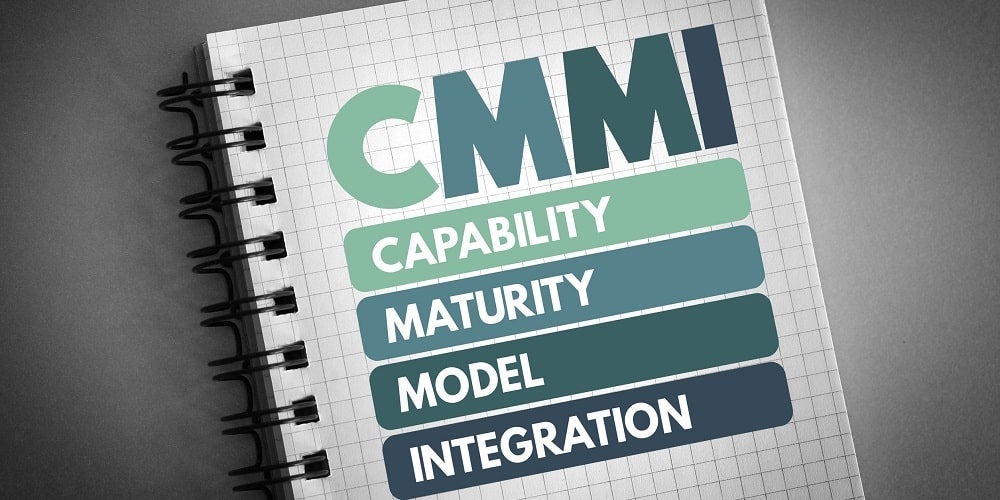Category: Metrics

Six Sigma Software Metrics, Part 3
Published:Parts one and two of this series surveyed the work connected with several goals shared by software organizations and Six Sigma (Goals 1-3 in Table 1). We saw that reaching those goals involved establishing systems to identify defects, classify them according to type and point of origin, predict their occurrence, and assess actual defect find […]
Read more »
Six Sigma Software Metrics, Part 4
Published:This article is the last of four parts. It presents a discussion of opportunities for defects (OFD), defects per million opportunities (DPMO) and Sigma levels. When comparing implementations across companies, using the common language of DPMO and Sigma levels will assist in understanding benchmarking data. Parts one, two and three followed a progression of goals […]
Read more »
Six Sigma Software Metrics, Part 1
Published:Six Sigma brings sharp focus to customer and business requirements and the defects connected with the failure to satisfy them. While the relevance of that view is clear enough to software professionals, their introduction to Six Sigma is often gets stopped short in questions about how the notions of yield, sigma level, or defects per […]
Read more »
Six Sigma Software Metrics, Part 2
Published:Part 1 in this series on software defect metrics discussed Goals 1 and 2, which focused on identifying and removing defects in the development process as close to the point of occurrence as possible (Table 1). This installment looks at predicting defect insertion and removal dynamics early in a project and measuring predicted versus actual […]
Read more »
Selecting Appropriate Metrics
Published:A frequently asked question by Six Sigma practitioners is how to select appropriate metrics for a particular organization or process. Considerable material has been written on this subject. This paper focuses on three aspects that should be of interest to Six Sigma practitioners: Why are metrics – and more importantly appropriate metrics – needed? A five-step procedure […]
Read more »
Implementing a Customer Satisfaction Metric
Published:Organizations evaluate themselves by measuring customer satisfaction with their products or services. As organizations evolve, the measurement of customer satisfaction across the entire organization becomes imperative. The first step is for an organization to implement a metric for tracking customer satisfaction. To develop a metric, an organization should explore these questions: Who are its customers? […]
Read more »
Six Sigma Opportunity Counting
Published:Imagine the scenario. Herman and Gary both manage processes for your company. Herman’s process involves a simple matching of supplier invoices to purchase orders. Gary’s process is much more complex. This process involves compliance to government regulations and requires massive amounts of data to be taken, accurately summarized and reported in several different formats to […]
Read more »
Time-based Metrics: Accounting for the Differences
Published:When plotting data from an improvement project, the difference between a start-based or end-based time series plot can be substantial. Understanding and accounting for this difference will avoid incorrect conclusions and lead to to better results.
Read more »
Exploring Defect Containment Metrics in Agile
Published:While Design for Six Sigma (DFSS) and Agile software development seem to have different orientations, there is more linkage than meets the eye. On one hand, DFSS and Agile appear to be at odds: DFSS talks about “stages” and tollgates, which Agile eschews in favor of Lean “single piece” or small batch flow. DFSS talks […]
Read more »
Using Effective Metrics to Measure Production Test Flow
Published:To characterize the effectiveness of productions tests, practitioners often use several types of metrics. Some measure the efficiency of the manufacturing process, while others measure the productivity. While these metrics are useful in many situations, they also come with drawbacks and limitations. One process can be efficient but not productive, while another may have high […]
Read more »
Tips for Defining and Collecting IT Process Metrics
Published:Several information technology (IT) metrics can be developed on the basis of best practice frameworks such as capability maturity model integration (CMMI) and information technology infrastructure library (ITIL). Measuring and collecting such data, which is often part of process improvement initiatives, brings to light what is happening in IT processes. Following are a few tips […]
Read more »
Tips for Avoiding Common Metrics Challenges
Published:Many organizations spend a lot of resources to collect and report a number of metrics without focusing on the proper utilization of them or tracking the return on investment in the effort. In some cases it may be difficult even to find meaningful metrics. Missing the right metrics poses a great risk to business decision-making […]
Read more »
Be Consistent in Metric Selection for Six Sigma Projects
Published:Six Sigma project metrics are typically taught in detail during Black Belt and Green Belt training classes. But the inconsistent use of these metrics after training can lead to lost opportunities and rework after a project ends. Using project metrics consistently brings enormous clarity to the impact and benefit of a Six Sigma project and […]
Read more »
Deploying a Measurement System: What Does It Take?
Published:Management concepts such as the balanced scorecard, process management, key performance indicators and strategy deployment have prompted many executives to revisit their measurement systems. As more and more companies have initiated Six Sigma during the last two decades, the use of dashboards to measure process and business performance has become increasingly popular. As a result, […]
Read more »
Using Core Effectiveness Metrics to Drive Improvement
Published:A case can be made for using cost-of-quality metrics, combined with defect data, as overall measures of software and IT organizational effectiveness (Figure 1). The next logical step is to illustrate how these metrics might be used to drive improvement. The illustration can best be made with a “case study” of the famous-but-mythical software and […]
Read more »
Business Improvement Strategy, Masteries and Metrics
Published:Many organizations that deploy Lean and Six Sigma eventually hit what is referred to as the “performance measurement wall.” These organizations begin with the right intentions, however, the bottom-line results from their Lean and Six Sigma initiatives are often illusionary because they are focused on the wrong targets. One of the major reasons for this […]
Read more »
Defining Primary Metric: Starting Off on the Right Path
Published:After a rocky start developing the project’s primary metric, a Six Sigma team was able to increase the accuracy rate of dispenser maintenance calls, resulting in potential savings for the company of more than a million dollars.
Read more »
The Warning Signals of a Failing Six Sigma Program
Published:If an organization’s Six Sigma program is beginning to fail, there are warning signals. Those signals can be as simple as gut feelings, but many can be compiled into a list of specifics which indicate a disconnection from the core business.
Read more »
Value Matters as a Key Metric for Six Sigma Initiatives
Published:A key measurement of Six Sigma effectiveness is the application of appropriate metrics. Mikel Harry and Richard Schroeder, two pioneers of Six Sigma, state in their book Six Sigma that, “An organization’s profitability is determined by what it chooses to measure and how it measures it.” They point out that most companies need to change […]
Read more »
Core Set of Effectiveness Metrics for Software and IT
Published:Most software and IT organizations have great difficulty measuring organizational efficiency and effectiveness, despite a bewildering array of metrics that have been proposed and occasionally used. However, a basic-yet-powerful set of metrics that gets to the heart of these issues does exist, and at the same time facilitates the application of Six Sigma. It is […]
Read more »
Calculating Sigma Level for Project Planning Process Area
Published:An organization’s sigma level in terms of key CMMI process areas can be measured via metrics related to that process area. Organizations not using Six Sigma also can use this technique to measure their sigma level in terms of project planning process area.
Read more »
Ask the Expert: The Topic – Six Sigma Metrics
Published:David Henkin, a principal at The Vanguard Group, offers his views on Six Sigma metrics. He discusses ideas on metrics used by successful companies, Six Sigma metrics versus business metrics and the best ways to present metrics to upper management.
Read more »
A Leadership Roadmap for Managing with Metrics
Published:Nine practical steps that focus on facts and data can provide a roadmap for business leaders at all levels on how to use the Six Sigma method to drive strategy implementation. 1. Start at the Finish Line: Define Strategic Objectives By far the worst use of Six Sigma is on non-strategic issues. Chartering projects with […]
Read more »
We Are in the Field of PCB Manufacturing and Are Using About 800 Components. How Should We Decide the Opportunities During Calculation of Sigma Value?
Published:Simply stated, an opportunity is merely a set of conditions favorable to some end. In view of the two possible fates of a (critical to quality) CTQ – success or failure – we have the idea of a yield opportunity and that of a defect opportunity. Since one is merely the flip side of the other […]
Read more »